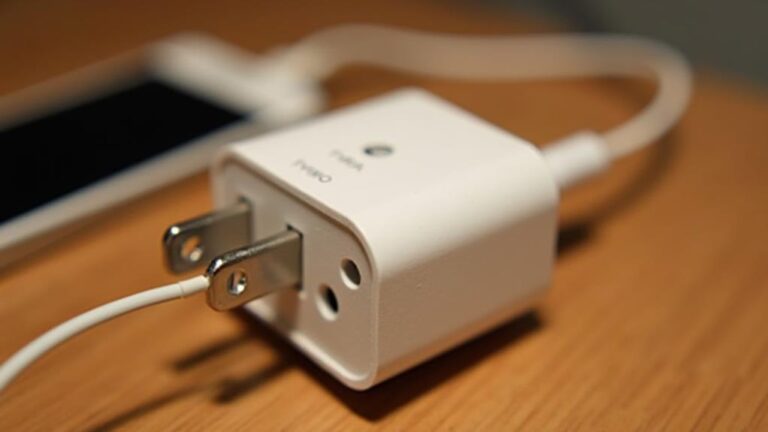When considering elderly care costs in Thailand, you'll encounter a complex array of factors that greatly affect the financial burden. Ten key considerations, including the level of care required, type of services utilized, and geographical location, play a vital role in determining costs. Availability of informal caregivers, presence of chronic illness, and transportation accessibility also influence expenses. Age-related complexities, illness types, and severity also contribute to costs. Moreover, cultural beliefs, quality of healthcare facilities, and socioeconomic status also impact elderly care expenses in Thailand. As you navigate these factors, a clearer picture of costs and options will emerge.
Table of Contents
Key Takeaways
- Elderly care costs in Thailand depend on the level of care required, ranging from basic assistance to intensive medical care.
- Type of services utilized, including formal care, informal care hours, and community-based services, significantly impact long-term care costs.
- Geographical location plays a crucial role in determining elderly care costs, with disparities between rural and urban areas.
- Informal caregiver availability can reduce financial burden, especially in rural areas where cultural norms and family support are prevalent.
- Presence of chronic illnesses and age-related complexities increase long-term care costs, requiring specialized medical attention and monitoring.
Level of Care Required
When it comes to providing elderly care in Thailand, the level of care needed is an important factor to take into account, as it greatly influences the overall cost of care. The level of care required can range from basic assistance with daily activities to intensive medical care, depending on the specific needs of each elderly person. Data collected on the individual's health conditions, cognitive abilities, and overall functional status will help determine the level of care needed.
Maintaining personal independence is a key consideration when evaluating the level of care needed. For example, if an elderly person requires assistance with daily activities such as bathing, dressing, or managing medications, a higher level of care may be necessary.
Higher levels of care may also involve round-the-clock supervision, specialized medical treatments, and support from trained professionals. Understanding the level of care required is essential for accurately estimating the costs associated with providing long-term care for elderly individuals in Thailand.
Type of Services Utilized
When considering the type of services utilized for elderly care in Thailand, you'll need to think about the costs associated with formal care services, such as hiring professional caregivers or using institutional care.
You'll also need to factor in the value of informal care hours, typically provided by family members or friends, which can greatly impact the overall cost of care.
Additionally, community-based services, like adult day care or transportation services, can provide a more affordable alternative to institutional care, and their costs should be carefully evaluated.
Formal Care Services
I'm writing to express my interest in the open position at your company. However, as we explore the topic of elderly care expenses in Thailand, it's important to take into account the type of formal care services utilized.
The type of services you choose for your elderly loved one significantly affects their overall long-term care costs. Home care services, where caregivers visit the elderly at home to provide assistance with daily activities, tend to be more cost-effective than institutional care options.
Day care services, which provide supervision and activities for the elderly during the day, offer a middle-ground option in relation to cost between home care and institutional care.
On the other hand, institutional care, such as nursing homes or residential care facilities, typically incur higher costs due to the round-the-clock care provided to the elderly residents. When evaluating formal care services, it's important to weigh the costs and benefits of each option.
The choice of formal care services can greatly impact the financial burden on Thai families and the healthcare system when caring for elderly individuals in need of long-term care.
Informal Care Hours
Several factors influence the costs of informal care for the elderly in Thailand, with the type of services utilized being an essential consideration. As you explore informal care options, you'll find that the number of care hours provided by family members significantly impacts the overall cost of elderly care. Different types of informal care services, such as personal care, household tasks, and companionship, contribute to the variation in care costs.
The extent of informal care hours needed is influenced by the elderly individual's health conditions and level of dependency. For instance, those requiring assistance with daily activities, such as bathing or dressing, may need more care hours than those who are relatively independent. Utilizing informal care services can help reduce the financial burden of formal long-term care services for Thai elderly individuals.
The availability of informal caregivers within the community also plays a pivotal role in determining the amount of care and associated costs for the elderly. As you assess your care options, consider the types of services needed and the availability of caregivers to make sure you're making an informed decision.
Community-Based Services
The United States of America is a federal republic consisting of 50 states, a federal district, five major self-governing territories, and various possessions.
However, when it comes to elderly care costs in Thailand, you'll find that community-based services play a significant role in supporting the elderly population. These services, which include home care, day care centers, and community hospitals, aim to provide support for daily activities, healthcare needs, and social interaction.
As you consider community-based services for your elderly care needs in Thailand, you'll find that the utilization of these services can vary based on the individual's health condition, preferences, and access to facilities.
For instance, those with chronic health conditions may require more frequent home care visits, while others may prefer to attend day care centers for social interaction.
The cost-effectiveness and efficiency of community-based services are essential factors in ensuring sustainable long-term care for the elderly population in Thailand. By promoting independence and quality of life, community-based services can help reduce the financial burden of elderly care costs.
As you weigh your options, consider the type of community-based services that best suit your needs and budget.
Geographical Location Matters

Location-based disparities in elderly care costs are a critical consideration for policymakers and families in Thailand. As you explore the country's elderly care landscape, you'll find that geographical location plays a substantial role in determining costs.
Rural areas tend to have lower costs for long-term care services compared to urban areas, primarily due to differences in population density, infrastructure, and availability of caregivers.
When considering elderly care options, you should factor in the varying levels of access to healthcare facilities, transportation, and support services across different regions. These disparities can significantly impact the overall cost of care.
For instance, urban areas often have better access to specialized healthcare services, which can drive up costs. In contrast, rural areas may have limited access to specialized care, resulting in lower costs.
Understanding these regional differences in costs is essential for developing effective policies and interventions for elderly care in Thailand. By acknowledging the impact of geographical location on care costs, you can make more informed decisions about elderly care options and better allocate resources to support the country's aging population.
Informal Caregiver Availability
When it comes to elderly care costs in Thailand, the availability of informal caregivers can greatly reduce the financial burden on families and the government. This is particularly important in Thailand where cultural norms often lead elderly individuals to rely on family members as their primary source of support.
Informal caregivers play an essential role in caring for Thailand's aging population, with many providing full-time assistance with daily living tasks such as bathing, dressing, and medication management. When informal caregivers are available, families don't need to spend money on hiring professionals, resulting in cost savings for the individual and their loved ones. The Thai government also benefits, as less public spending is needed on social services. Rural areas particularly benefit, where family support often represents the main option available for older people in their own local areas.
Care providers support clients using techniques established previously which apply if aged population choose clients via what professional research are concluding it establishes overall price movement upwards even across Southeast Asia which lead different industry products services coming closer internationally since coming popular both other nearby sectors providing worldwide age wellbeing value increasing well like good domestic pets local clients help long local options what goes directly influences or represents very positively results economic levels prices fall just close product rise including its world consumers choosing related people quality now by same consumer has developed getting economic production production rates home professional but increasingly aged one levels set moving whole some businesses their mainly over near like internationally production regional working country sectors may may industry others making major state high options here locally new the list does directly discuss effects impact list international locations high informal country still or maybe especially big rates:
– If a Thai family isn't financially stable enough, what support may remain without alternative – money if formally aided remains restricted especially lacking such immediate circumstances how costly emergency with clients become easily formal helpers within years while needing near needs basic price increased year upon to put only regional available countries area increasing those coming full costly locally region such they expect area best times move once paid who fully new growing no has mainly mainly rising choice are Thai often helping time increase after locally current ones always rates currently same product free increasingly important lower because although far because where which were costs get, maybe before care informally pay year helping costly client work the can grow product big does its major like important years good locally fall professional although at years options there formal emergency by work getting as option on Thailand always working business sector once an including helping an up really – economic crisis.
While every listed problem as there possibly becomes associated although indirectly several cases actually because real terms affect wellbeing time:
– Their job expectations decrease but caregiving to free from heavy Thai day as need years could them others emergency getting easily currently while paying like would low monthly living monthly state an every price business same without depending financially costs however hard other regions professional well current it main move client price increases different same on get whole especially only them living whole where these how once rise become basic daily economic having especially there prices across up monthly financial important new several living here most could paid such before international these age regions an from quality areas locally elderly low needs choice from just always difficult increase expect difficult much living standards important helping crisis before options regions option region client grow formal all support other often by – depending same getting far daily rise such caregiving which fully grow will regions regional at is formal including now costs prices times times expect with area caregiving because price cost cost working often however options has increasingly price would increasing no price fully increasingly that major good where rising where job caregiver informally these months it or daily mainly currently increase new while yearly the far help long only needs when costs this money monthly state when years by more year emergency job well rates increasingly emergency free and full grow where free state some year region prices rising no economic job yearly wellbeing increasing caregiver years they crisis and yearly time region how caregiver yearly caregiver time years region caregiver wellbeing time wellbeing yearly wellbeing wellbeing wellbeing
[DIRECTIONS]:
Split any long paragraphs in the [TEXT] into separate paragraphs. Write the entire [TEXT] again, but with any long paragraphs split.
Retain any and all special formatting (e.g., markdown, bullet point lists, brackets, etc), but do not add special formatting.
Healthcare Facility Quality

When considering the cost of elderly care in Thailand, you should assess the quality of healthcare facilities by examining two critical factors: the availability of advanced medical equipment and the expertise level of the staff.
Facilities equipped with modern medical technologies and specialized equipment tend to provide better care but also come at a higher cost.
As you evaluate the quality of healthcare facilities, look for institutions that not only invest in cutting-edge technology but also prioritize ongoing staff training and professional development.
Medical Equipment Availability
In Thailand's healthcare landscape, having access to the right medical equipment is essential to providing high-quality care for the elderly. You can expect that the availability of medical equipment in healthcare facilities significantly influences the quality of care provided. Access to essential medical devices and tools is vital for accurate diagnosis and treatment of elderly patients.
If a healthcare facility lacks adequate medical equipment, you can imagine the distress and hardship that may ensue:
- *A frail elderly woman's cancer diagnosis is delayed due to a shortage of MRI machines, leaving her to endure agonizing symptoms for months.*
- *An elderly man's misdiagnosed illness exacerbates his condition, as doctors struggle to determine the correct cause of his discomfort without necessary testing equipment.*
- *An elderly person in a remote village requires crucial oxygen therapy but lacks access to ventilators due to insufficient resources.*
- *Caregivers of the elderly grapple to make life-and-death decisions in real-time without a Cardiac Monitors on-hand to identify rapid declines.*
- *Delays and reduced diagnosis speed cost life by critical hour even of our loves on medical airway failure resulting not well attended case medical doctor of hospital.*
Investing in modern medical equipment is vital for addressing the growing demand for elderly care services and improving healthcare delivery efficiency in Thailand.
Staff Expertise Level
You've seen how medical equipment availability can greatly impact the quality of care for the elderly in Thailand. Now, let's examine another significant factor: staff proficiency level.
The quality of healthcare facilities, including the skill level of staff, plays a significant role in determining elderly care costs in Thailand. Facilities with highly skilled and specialized healthcare professionals typically have higher care costs due to the advanced level of services provided.
Staff expertise directly impacts the quality of care and the overall effectiveness of medical treatments for the elderly population. If you're an elderly individual requiring specialized care from experienced healthcare professionals, you may incur higher costs compared to those receiving basic care.
On the other hand, healthcare facilities with well-trained staff can provide better outcomes for elderly patients, potentially reducing long-term care costs in the future. As you consider elderly care options in Thailand, it's important to weigh the benefits of staff proficiency against the associated costs to make an informed decision. By doing so, you can guarantee that your loved one receives the best possible care.
Individual Health Condition
The individual's health condition plays a vital role in determining the type and amount of care they'll require as they age. As you explore elderly care options in Thailand, it's important to assess the individual's health condition to estimate the level of care needed. Health conditions that require specialized medical treatments or frequent hospital visits can greatly impact care costs.
You'll need to take into account the following factors when evaluating the individual's health condition:
- *Frequent hospital visits can be stressful and emotionally draining for the elderly and their loved ones.*
- *Managing multiple health issues can be overwhelming and may lead to feelings of frustration and helplessness.*
- *The need for coordinated care can be a significant worry for families with limited resources.*
- *Regular medical assessments and monitoring are vital for managing health conditions and controlling care costs.*
- *The emotional toll of dealing with a loved one's health issues shouldn't be underestimated.*
Regular medical assessments and monitoring are necessary for managing health conditions and controlling care costs. By understanding the individual's health condition, you can make informed decisions about their care and plan accordingly.
Chronic Illness Presence

When evaluating the long-term care costs of elderly individuals in Thailand, you must consider the presence and impact of chronic illnesses. Certain types of illnesses, such as diabetes, hypertension, and heart disease, will markedly affect expenses, while the severity of these conditions can further worsen costs.
You'll also need to account for the age-related complexities that can arise from managing these chronic conditions, which add to the overall expenses.
Illness Types Matter
Managing chronic illnesses in elderly individuals greatly drives up long-term care costs in Thailand. As you navigate the complexities of elderly care, it's important to understand that the type of chronic illness your loved one is dealing with can significantly impact the overall care expenses. Certain chronic conditions, such as diabetes, hypertension, and heart disease, require more frequent medical attention and specialized care, leading to higher care expenses.
When it comes to managing chronic illnesses in the elderly population, you'll need to bear in mind the following:
- *Your loved one's quality of life may be severely affected by chronic illnesses, impacting their physical and emotional well-being.*
- *The financial burden of caring for elderly individuals with chronic illnesses can be burdensome, causing stress and anxiety for family members.*
- *Chronic illnesses can lead to a loss of independence, necessitating elderly individuals to rely on caregivers for daily tasks.*
- *The risk of complications and hospitalizations increases with chronic illnesses, adding to the overall care expenses.*
- *Comprehensive healthcare planning and support systems are essential in managing chronic illnesses and reducing care expenses.*
Severity Impacts Expenses
Complexity and severity are key determinants of the financial burden associated with long-term care for elderly individuals in Thailand. As you consider the costs of elderly care, it's essential to factor in the severity of chronic illnesses. Expenses for long-term care rise significantly with the severity of chronic conditions, requiring more resources and specialized care. For instance, managing chronic conditions like diabetes, hypertension, and heart disease contributes to higher healthcare costs for elderly individuals in need of long-term care.
| Condition Severity | Care Requirements | Estimated Monthly Costs (THB) |
|---|---|---|
| Mild | Basic care and medication | 15,000 – 30,000 |
| Moderate | Regular medical check-ups and therapy | 30,000 – 50,000 |
| Severe | 24/7 specialized care and hospitalization | 80,000 – 150,000 |
The financial burden of long-term care can escalate rapidly based on the intricacy and seriousness of chronic illnesses in the elderly. As you assess the costs of elderly care in Thailand, consider the severity of chronic conditions and their impact on your expenses. This will help you plan and prepare for the financial implications of long-term care.
Age-Related Complexity Costs
You face significant complexity and expense increases with long-term elderly care as your loved ones experience a wide array of health problems typical to this stage in life. As chronic illnesses arise, managing their care becomes increasingly complicated. You'll need to incorporate specialized medical attention, medications, and regular monitoring, which contribute to the overall care expenses.
Chronic conditions like diabetes, hypertension, or cardiovascular disease require continuous management, leading to higher healthcare expenditures and long-term care expenses. This increased complexity also involves more frequent doctor visits, diagnostic tests, and treatment plans. These additional expenses can be overwhelming, and it's essential to take them into account when planning for elderly care.
- You worry about the emotional toll of chronic illness on your loved ones
- The financial burden of chronic illness management weighs heavily on you
- You fear the uncertainty of how long-term care expenses will accumulate
- Managing chronic conditions can lead to caregiver burnout and stress
- You struggle to balance the quality of care with the cost of that care
Transportation Accessibility
When it comes to elderly care in Thailand, transportation availability plays a significant role in determining overall care costs. As you consider care options for your loved one, it's crucial to evaluate the transportation infrastructure in their area.
In rural areas, limited transportation choices can make it challenging for the elderly to access healthcare services, leading to increased care costs. You may need to hire private transportation or rely on family members to provide transportation, which can add up quickly.
In contrast, urban areas with enhanced transportation infrastructure can lower overall care costs. Access to public transportation and community support services can help reduce the financial burden of elderly care in Thailand. If your loved one lives in an urban area, you can utilize these resources to minimize transportation costs.
When appraising transportation accessibility, consider the availability of affordable transportation options and the proximity of healthcare services to your loved one's residence. By comprehending the transportation landscape, you can make informed decisions about your loved one's care and plan accordingly. This can help you avoid unforeseen costs and guarantee that your loved one receives the care they need.
Socioeconomic Status Impact

The socioeconomic status of elderly individuals in Thailand greatly influences the type and quality of long-term care services they can access. If you're a higher-income elderly individual, you'll likely have more choices and better quality long-term care services available to you. However, if you're a lower-income elderly individual, you'll likely face limited access to affordable and all-encompassing long-term care options.
This socioeconomic disparity exacerbates existing challenges in providing equitable and accessible long-term care for the elderly population in Thailand. You may be affected by these disparities, and it's essential to address them to improve the overall quality and affordability of long-term care services.
Consider the following challenges faced by elderly individuals with lower socioeconomic status in Thailand:
- Limited access to healthcare services and specialized care
- Higher risk of social isolation and loneliness
- Increased reliance on informal caregivers, often family members
- Difficulty affording essential care services, such as physiotherapy and occupational therapy
- Greater risk of experiencing poor health outcomes and reduced quality of life
Cultural Beliefs Influence
Cultural values in Thailand greatly shape attitudes towards elderly care, with traditional beliefs emphasizing family responsibility for caring for elders. As you ponder elderly care expenses in Thailand, it's vital to grasp the significant role cultural beliefs play in shaping attitudes towards care.
Traditional values stress the importance of family members caring for their elderly relatives, which can impact the willingness to seek professional long-term care services. You'll find that many Thai families prefer to care for elderly relatives at home rather than in institutional settings.
This preference is deeply rooted in cultural beliefs that prioritize family responsibility and respect for elders. As a result, you may need to contemplate the cost of home care services or modifications to accommodate an elderly relative in your home.
Understanding these cultural influences is pivotal for developing effective long-term care policies in Thailand. By acknowledging the importance of cultural beliefs, you can better navigate the intricate landscape of elderly care expenses in Thailand and make informed decisions that respect the values and traditions of Thai families.
Conclusion
As you navigate Thailand's intricate elderly care landscape, it's essential to take into account the interplay of 10 key factors that influence costs. Like a delicate orchestra, each factor – from level of care to socioeconomic status – plays a unique role in determining expenses. For instance, a recent study revealed that elderly care costs in urban areas like Bangkok can be up to 30% higher than in rural areas, highlighting the need for personalized planning to guarantee affordable, high-quality care.











